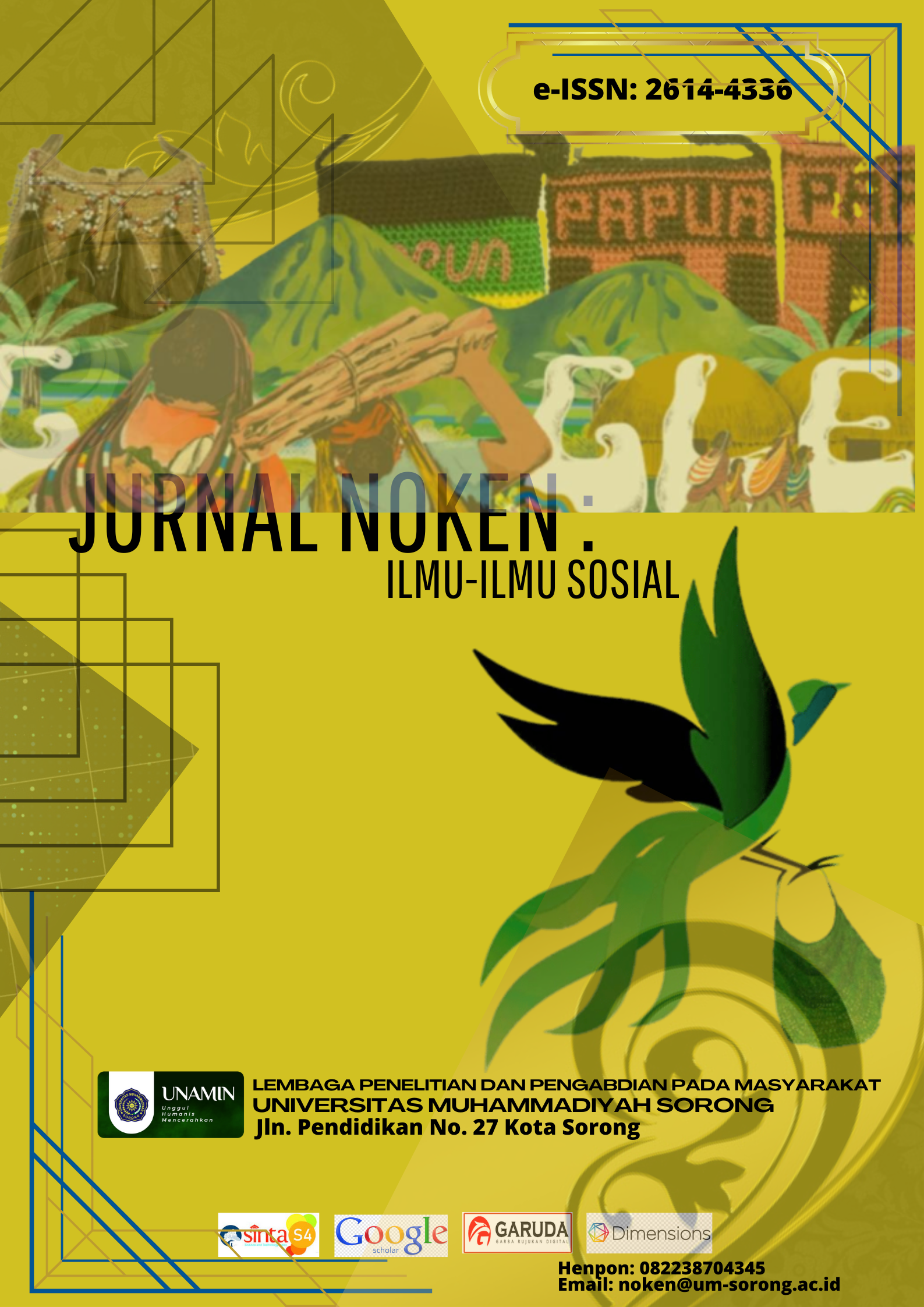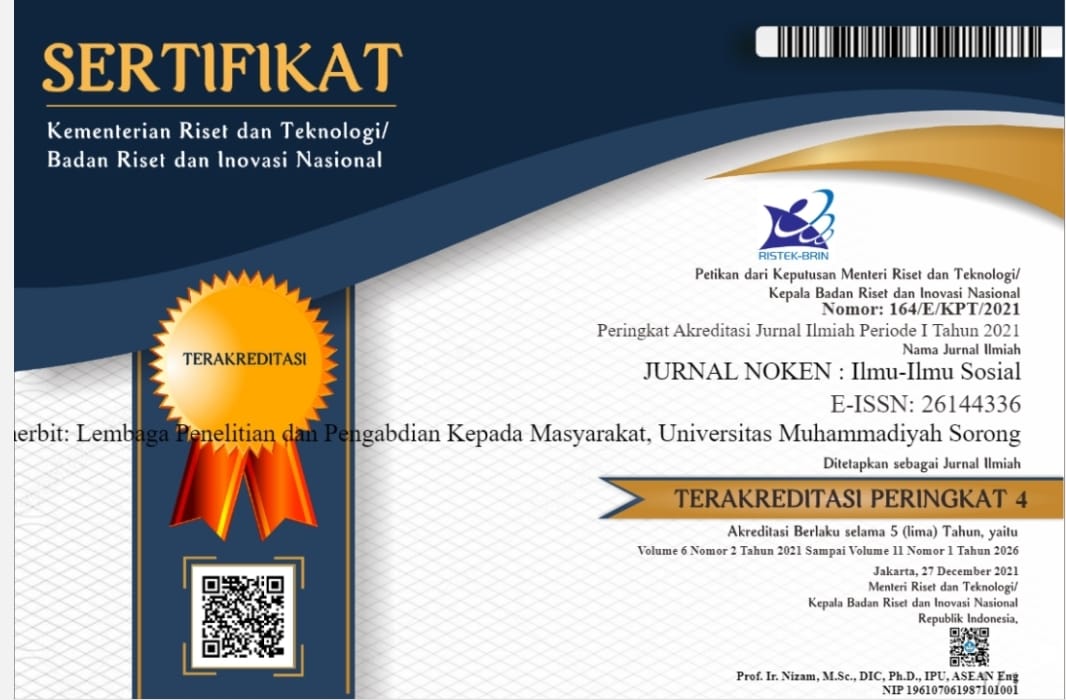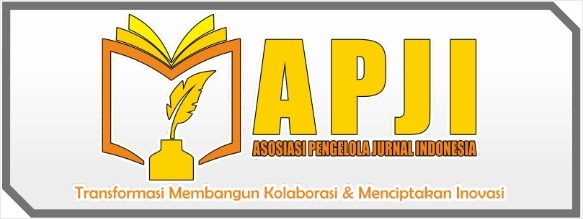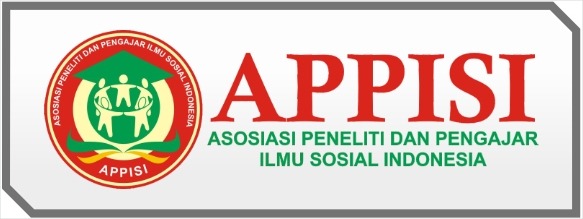Bakar Babi: Dari Ritual Budaya ke Simbol Politik Suku Moskona dalam Pemilihan Legislatif di Teluk Bintuni, Papua Barat
DOI:
https://doi.org/10.33506/jn.v11i2.5001Keywords:
Ritual Bakar Babi, Simbol Politik, Kepala Suku dan LegislatifAbstract
This study aims to describe a political phenomenon in the Moskona Teluk Bintuni indigenous community, by covering the objective task as the focus of the analysis. First, the Bakar Babi (Pig Burning) Ritual in the Moskona Tribe Culture. Second, the bakar babi as a Political Symbol in Moskona Tribe Solidarity in the Political Realm, and Third, Social Capitalization in the Tribal Chief's Victory in the 2019 Legislative Election in Teluk Bintuni. This study used social capital theory to analyze, describe and direct this research to find the meaning of the truth about the Bakar Babi ritual and its relationship in the legislative election arena. While the qualitative research approach with descriptive research type, and data collection were carried out through interviews, observations and in-depth and relevant literature studies. From the three research objectives, it was found that the Bakar babi ritual is part of the culture and mechanism of life in the social life of the Moskona tribe, and until now it continues to be preserved. More profoundly, the Bakar Babi ritual has become a political symbol constructed as a cultural ritual of victory and maintaining social solidarity, which is nothing more than a node of political power for the victorious elite in political contests. The Moskona people believe that the tribe is the source of truth and goodness, therefore, the process of capitalizing on social capital is very effective in winning in the political arena.
References
Bourdieu, Pirre. (2004). Social Capital. London dan New York: Routledge Taylor & Francis Goup
_______. (2020). Bahasa dan Kekuasaan Simbolok. Yogyakarta: IRCiSoD.
Field, John, (2018). Modal Sosial. (Terjemahan Nurhadi). Bantul: KREASI WACANA.
Fukuyama, F.(2010). Trust, Kebajikan Sosial dan PenciptaanKemakmuran, (Terjemahan Ruslani). Cetakan Kedua. Yogyakarta: Penerbit Qalam
Fukuyama, F.(2018). Identity: Contemporary identity politics and the struggle for recognition. Profile books.
Fukuyaman, F. (2002). Trust, Kebijakan Sosial dan Penciptaan Kemakmuran. Yogyakarta: Qalam..
Halim, Abd. (2014). Politik Lokal: Pola, Aktor dan Alur Dramatikalnya. Yogyakarta: LP2B..
Haryanto, H. Power in the Tradition of Kain Timur Exchange: A Study of Using Tradition to Get Support in the Local Election in South Sorong 2010. PCD Journal, 5(1), 113-145.
Haryanto. Elit Politik Lokal dalam Perubahan Sistem Politik. Jurnal Ilmu Sosial dan Ilmu Politik Volume 13, Nomor 2, November 2009 (131-148) ISSN 1410-4946
Hasbullah, (2004). Social Capital: Menuju Keunggulan Budaya Manusia Indonesia. Jakarta: MR-United Press.Arnie, Seberapa Pentingkah Norma dalam Kehidupan Manusia, dalam http://id.answers.yahoo.com/question/index?qid=20110306025222AAsjGyD
Jones, T. (2015). Kebudayaan dan kekuasaan di Indonesia: Kebijakan budaya selama abad ke 20 hingga Era Reformasi. Yayasan Pustaka Obor Indonesia.
Kahneman, D., & Klein, G. (2009). Conditions for intuitive expertise: A failure to disagree. American Psychologist, 64(6), 515–526
Matthew B. Miles, A. Michael Huberman, J. S. (2014). Qualitative Data Analysis.
Ningtias, Eka. Piere Bourdieu, Language and Power. Polity Press, Malden. 2007. (artikel terjemahan).
Putnam, RD. (1993). The Prosperous Community: social Capital and Public Life, dalam The American Prospect, Vol.13
Scott, J. (2012). Apa itu analisis jaringan sosial? (hlm. 114). Bloomsbury Academic.
Wahid, B. dkk. (2021). Kapitalisasi Modal dan Kepentingan Elit Politik (Studi Arena Perebutan Pemimpin Lokal Antara Anak Adat Moi di Kabupaten Sorong 2017). Jurnal Noken: Ilmu-Ilmu Sosial, 6(2), 104-116.
Weinberg, A. (2012). Should the job of national politician carry a government health warning?—The impact of psychological strain on politicians. The Psychology of Politicians, 123–142
Downloads
Published
How to Cite
Issue
Section
License
Copyright (c) 2025 Bustamin Wahid, Uswatul Mardliyah, Siti Nurul Nikmatul Ula, Nanik Purwanti, Putri Bulkis Subhan

This work is licensed under a Creative Commons Attribution-ShareAlike 4.0 International License.










